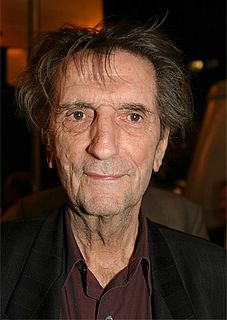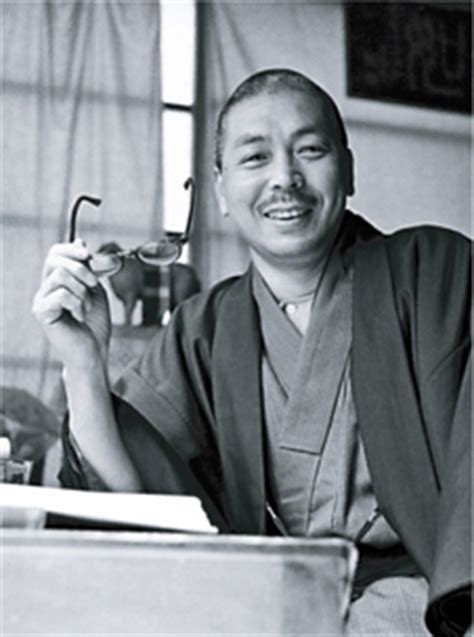Top 651 Hinduism And Buddhism Quotes & Sayings
Explore popular Hinduism And Buddhism quotes.
Last updated on November 15, 2024.
All that you seek is already within you. In Hinduism it is called the Atman, in Buddhism the pure Buddha-Mind. Christ said, 'the kingdom of heaven is within you.' Quakers call it the ‘still small voice within.’ This is the space of full awareness that is in harmony with all the universe, and thus is wisdom itself.
To you, Christianity, Judaism, Islam, Buddhism, and Hinduism look very different, but to me they look the same. Many of you would say that something like Buddhism doesn't even belong on the list, since it doesn't link salvation to divine worship, but to me this is just a quibble. Christianity, Judaism, Islam, Buddhism, and Hinduism all perceive human beings as flawed, wounded creatures in need of salvation, and all rely fundamentally on revelations that spell out how salvation is to be attained, either by departing from this life or rising above it.
Hinduism, Confucianism, and Buddhism are huge traditions of enormous importance, and they aren't monotheistic. Again, this reflects the fact that our preconceptions about what religion is are so influenced by Protestantism - either real Protestantism or the secularized Protestantism that dominates our culture - and its assumption that beliefs are the most important thing.
I know that Arnold Toynby, the great historian, said he had always hoped the religions of the world would evolve until they began to bring the very best of each tradition into one tradition. He hoped that Christianity would be the one religion that finally incorporated the values of Hinduism and Buddhism, and enriched itself with them.
Every single one of the major world faiths, whether we're talking about Hinduism, Buddhism, Confucianism, Darwinism, Judaism, Christianity and Islam, have all come to the conclusion that what holds us back from our better self is ego, selfishness, greed, unkindness, hatred. And it all springs from a sense of thwarted ego.
The concept (of happiness) is universal. In Buddhism, it is called causeless joy, in Christianity, the kingdom of heaven within, and in Judaism it is called ashrei, an inner sense of holiness and health. Is Islam it is called falah, happiness and well-being, and in Hinduism it is called ananda, or pure bliss.
The cartoonists treated Islam the same way they treat Christianity, Buddhism, Hinduism and other religions. And by treating Muslims in Denmark as equals they made a point: we are integrating you into the Danish tradition of satire because you are part of our society, not strangers. The cartoons are including, rather than excluding, Muslims.
I think that there are no forces on this planet more dangerous to us all than the fanaticisms of fundamentalism, of all the species: Protestantism, Catholicism, Judaism, Islam, Hinduism, and Buddhism, as well as countless smaller infections. Is there a conflict between science and religion here? There most certainly is.
Really, whatever I was seeking and looking into in those days like creative arts, chant, the muse being in touch with the muse for poetry and writing and music. It's all part of the spirit and if we look particularly at Hinduism and Buddhism, the tantric stream of those traditions totally embraces all aspects of human life and life on this world.
Hinduism threw away Buddhism after taking its sap. The attempt of all the Southern Acharyas was to effect a reconciliation between the two. Shankaracharya's teaching shows the influence of Buddhism. His disciples perverted his teaching and carried it to such an extreme point that some of the later reformers were right in calling the Acharya's followers "crypto-buddhists".
The notion that Western religions are more rigid than those of Asia is overdrawn. Ours is the most permissive society history has ever known - almost the only thing that is forbidden now is to forbid - and Asian teachers and their progeny play up to this propensity by soft-pedaling Hinduism's, Buddhism's, Sufism's rules.
Well, I would have to say as a Christian that I believe any belief system, any world view, whether its Zen Buddhism or Hinduism or dialectical materialism for that matter, Marxism, that keeps persons captive and keeps them from coming to faith in the Lord Jesus Christ, yes, is a demonstration of satanic power.
Why can't we simply borrow what is useful to us from Buddhism, Hinduism, Taoism, especially Zen, as we borrow from Christianity, science, American Indian traditions and world literature in general, including philosophy, and let the rest go hang? Borrow what we need but rely principally upon our own senses, common sense and daily living experience.
If science proves some belief of Buddhism wrong, then Buddhism will have to change. In my view, science and Buddhism share a search for the truth and for understanding reality. By learning from science about aspects of reality where its understanding may be more advanced, I believe that Buddhism enriches its own worldview.













































